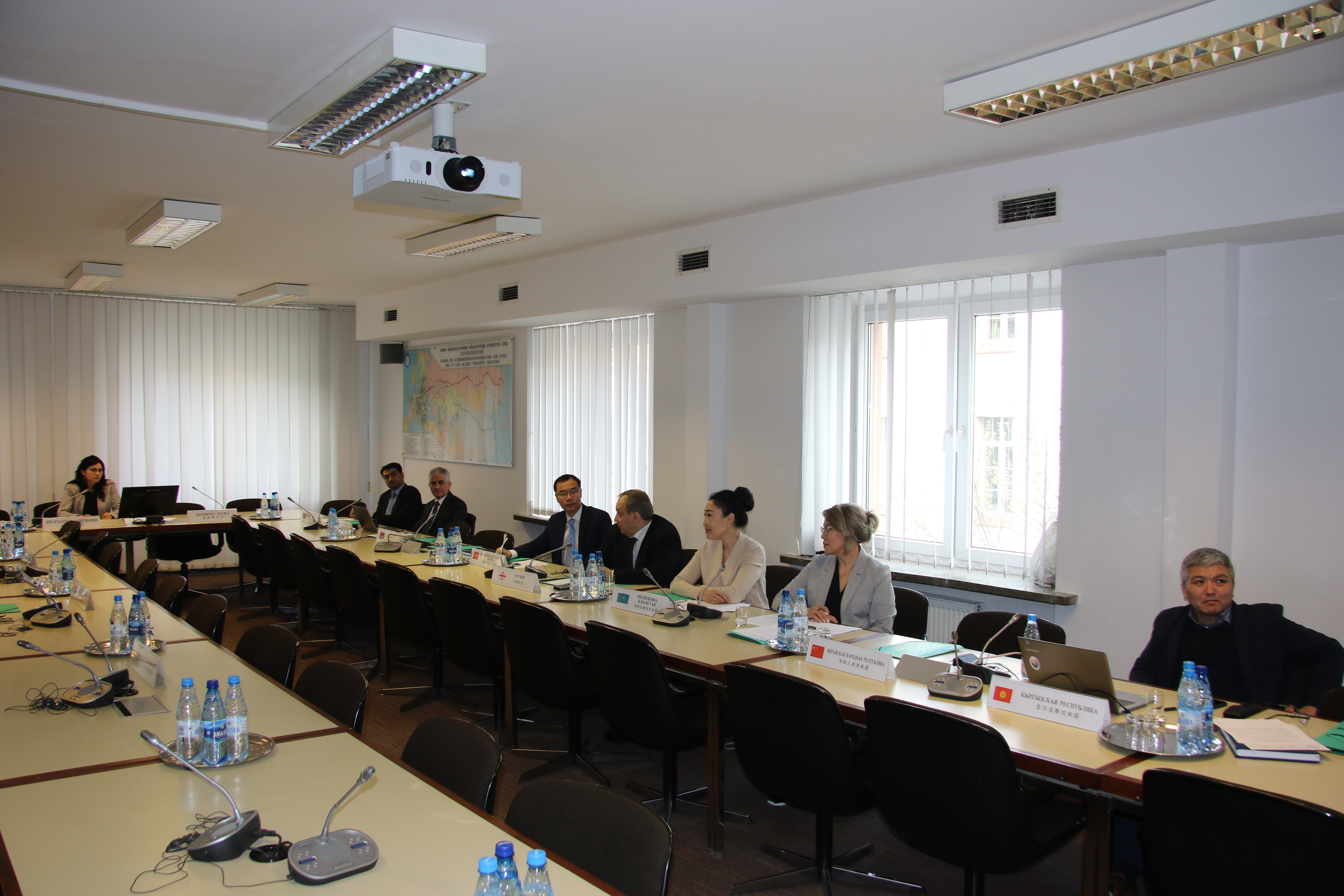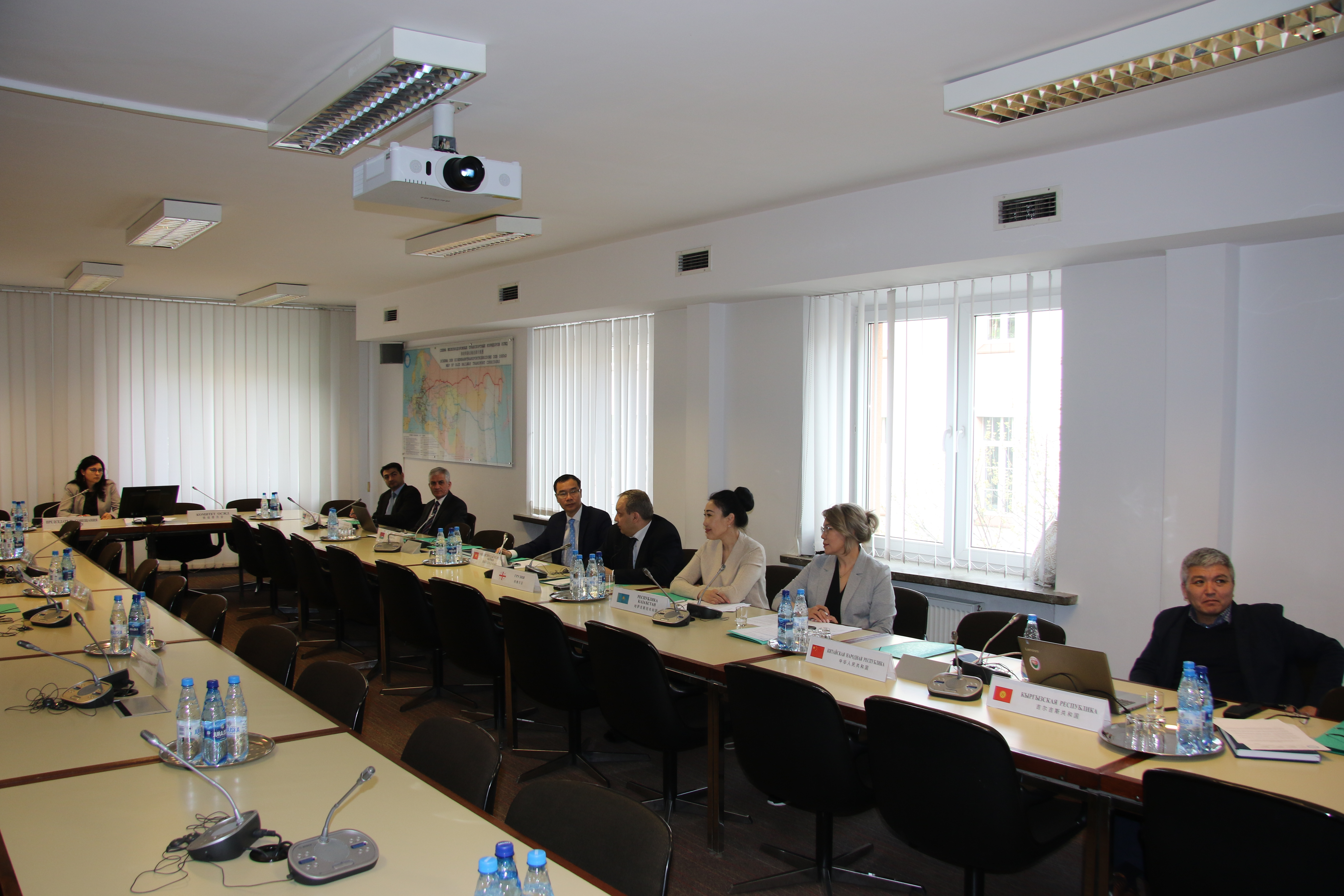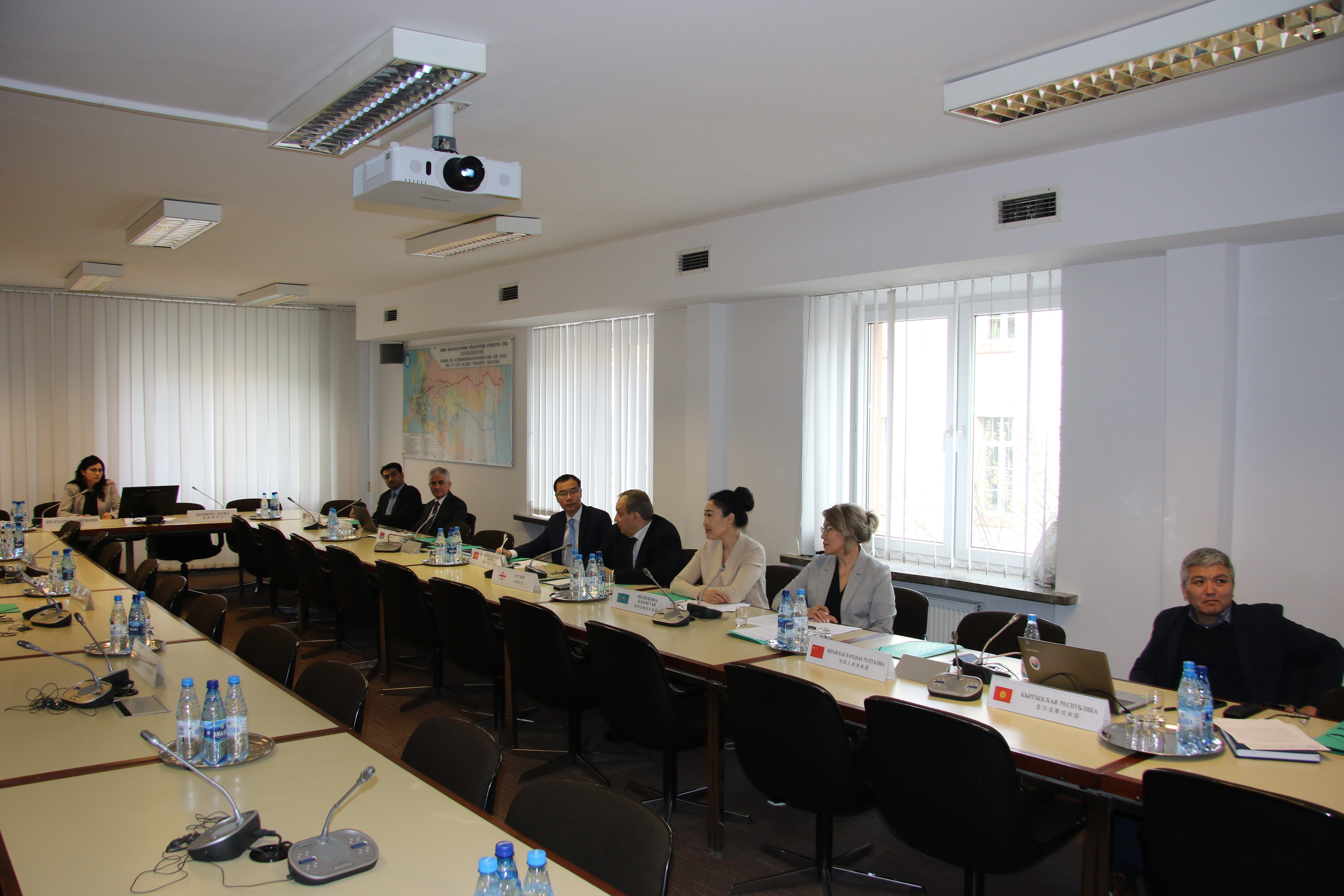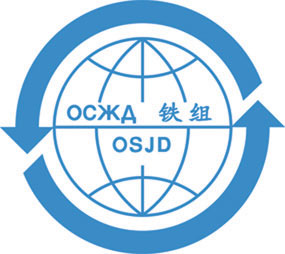Development of measures aimed at facilitating border crossing in international railway traffic in the Eurasian space (press-release)



In accordance with the Work Plan of the OSJD Commission on Transport Policy and Development Strategy for 2023, an expert meeting was held at the OSJD Committee (Warsaw) from 24 till 27 April 2023 on the subject “Development of measures aimed at facilitating border crossing in international railway traffic in the Eurasian space”, which was attended by the representatives of the following OSJD member countries: the Republic of Azerbaijan, Islamic Republic of Afghanistan, Socialist Republic of Vietnam, Georgia, Republic of Kazakhstan, People’s Republic of China, Kyrgyz Republic, Mongolia, Republic of Tajikistan, Republic of Uzbekistan, as well as representatives of international organisations – the UN Economic and Social Commission for Asia and the Pacific (UNESCAP), the Eurasian Economic Commission (EEC) and the OSJD Committee.
As part of the agenda, the meeting considered the following issues:
- an analysis was made of the reasons for delays in passenger trains and idling stops of freight wagons at border (transfer) stations for 2022 and reviewed the progress in developing measures aimed at facilitating border crossing procedures; - a revision was made of the implementation of provisions of the Declaration, adopted at the VIII International Interagency Conference on the subject “Practice in border crossing by rail” (22-23 September 2015, Gdańsk, Republic of Poland);
- the work progress was considered in the practical implementation of Annex 9 “Facilitation of border crossing procedures in international railway traffic” to the International Convention on the Harmonisation of Frontier Controls of Goods of 1982 was discussed;
- preparation of an action programme and development of measures (organisational, legal, technical and technological) were discussed aimed at facilitating border crossing procedures as part of preparations for the X International Interagency Conference on the subject “Practice in border crossing by rail”;
- preparation and approval of the draft Work Plan of the OSJD Commission on Transport Policy and Development Strategy for 2024 and the draft Work Programme for 2025 on the subject “Development of measures aimed at facilitating border crossing in international railway traffic in the Eurasian space” were carried out.
When discussing the agenda items, the meeting participants were informed that the working staff of the OSJD Commission on Transport Policy and Development Strategy (leading duty holder) had summed up the information on the reasons for delays in passenger trains and idling stops of freight wagons at border (transfer) stations for 2022 and an analysis was carried out in comparison with 2021 on the basis of analytical information received from the OSJD member countries in the approved format in the form of tables (templates):
- international passenger traffic:
(based on the information received from the Republic of Azerbaijan, Republic of Belarus, Republic of Bulgaria, Hungary, Republic of Kazakhstan, Kyrgyz Republic, Republic of Lithuania, Republic of Moldova, Mongolia, Romania, Republic of Tajikistan, Republic of Uzbekistan, Ukraine and Republic of Estonia)
- “Inquiry about the implementation of the passenger trains timetables at the border stations”,
- “Consolidated information on the implementation of the passenger trains timetables at the border stations”;
- international freight traffic:
(based on information received from the Republic of Bulgaria, Hungary, Republic of Kazakhstan, Kyrgyz Republic, Republic of Latvia, Republic of Lithuania, Republic of Moldova, Mongolia, Slovak Republic, Republic of Tajikistan, Republic of Uzbekistan, Ukraine and Republic of Estonia)
- “Inquiry on the number of delays (uncoupling) of freight wagons at the border, transfer stations”.
Based on the information provided, it can be concluded that the gradual restoration of the operation of international passenger trains in the post-COVID period continues, although international passenger traffic is still suspended on some railways.
In international freight traffic, the main reasons for delays (uncoupling) of freight cars at border/transfer stations are due to the following reasons:
- commercial,
- technical,
- excess in the number of delivered wagons from the mutually agreed quantity and approved daily schedule for the acceptance/delivery of wagons,
- absence of customs invoices or accompanying documents for the wagon dispatch, the invoices, incorrectly filled in,
- technical malfunctions of wagons, missing brands of the cargo owner,
- delay of freight wagons based on the decision of state control authorities (customs, border, phytosanitary, veterinary),
- obstruction of traffic/customs control/border control,
- for other reasons.
Periodically, bilateral investigations are conducted with neighbouring roads of cases of delays in passenger and freight trains, information is exchanged and the causes of delays are analysed.
The volumes of train traffic are agreed by the parties based on the effective use of the processing capacity of the border (transfer) stations and the throughput capacity of the sections adjacent to them.
It was noted that the work is underway to prepare an information compilation on the subject “Improving the efficiency of border (transfer) stations for international railway traffic in the Eurasian space” to be published in Chinese, Russian and English languages.
The meeting participants listened to and took note of the presentation on the subject “Ensuring interoperability of international railway transport. Assisting the facilitation of international railway traffic”, which was delivered by Ms. Lu Xuiming, Expert from the Foreign Relations Department of the State Railway Administration of the People’s Republic of China.
The Chinese side considers it expedient to create a single platform within the framework of the subject “Development of measures aimed at facilitating border crossing in international railway traffic in the Eurasian space” in order to ensure uninterrupted transport links, reduce delays of passenger trains and idling stops of freight wagons at border crossing points, through which an exchange of information on the functioning and operation of railway border crossing points/transfer stations of the OSJD member countries will be carried out, while the goals and objectives of which will be proposed before 21 July 2023.
As part of the consideration of the progress of work on the implementation of the provisions of the Declaration adopted at the VIII OSJD International Interagency Conference “Practice in border crossing by rail” (22-23 September 2015, Gdańsk, Republic of Poland), the meeting participants considered it expedient to continue the work on the exchange of information in this field.
Having discussed the information provided by the OSJD member countries on the measures taken for the practical implementation of Annex 9 “Facilitation of border crossing procedures in international railway traffic” to the International Convention on the Harmonisation of Frontier Controls of Goods of 1982, the meeting participants stated that:
- measures are being taken in the OSJD member countries to strengthen the technical equipment base of the railway border stations (availability of equipment, devices, information systems and communication facilities that make it possible to exchange the preliminary information, etc.) and to improve their infrastructure, the implementation of which will make it possible to bring the volumes of transportation in line with throughput and carrying capacity of stations and adjacent areas;
- bilateral investigations are periodically conducted between neighbouring railway administrations regarding the delays of passenger and freight trains (railway administrations exchange information and analyse the causes of train delays, including those that occurred due to the fault of railway service personnel);
- customs control is carried out on the basis of the principle of selectivity based on a risk analysis and management system: if the goods located in (on) a rolling stock unit are closed and sealed properly and the necessary information is provided on them, then customs control for transit goods, as a rule, is carried out in a simplified form;
- the application of Annex No. 9 contributed to an increase in the efficiency of border crossing points, as well as reduced the demurrage of freight wagons.
As part of these works, it is also planned to hold in 2023 the X International Interagency Conference on the subject “Practice in border crossing by rail” (26-27 September 2023, the OSJD Committee), which shall be aimed at analysing the progress in the field of border crossing by rail, noting positive examples, drawing attention to the existing problems and barriers in the transportation of passengers and goods, as well as discussing the comments and proposals of the border, customs bodies and railway administrations on the issue under discussion.
The meeting participants have drawn up and agreed on the draft provisional agenda for the X International Interagency Conference on the subject “Practice in border crossing by rail” and the draft preliminary programme of the meeting.
The meeting participants considered and agreed on the draft Work Plan of the Commission for 2024 and the draft Programme of Work for 2025 and subsequent years in the field of transport policy and development strategy on the subject “Development of measures aimed at facilitating border crossing in international railway traffic in the Eurasian space”.
The presentation delivered during the meeting by Sandeep Raj Jain, Economic Affairs Officer, Transport Facilitation & Logistics Section, UNESCAP Transport Division, on the subject “Facilitation of border crossing procedures in international railway traffic in the Eurasian space: UNESCAP initiatives”, provided a detailed analysis of all activities carried out in this area, including taking into account the introduction of the latest technologies in the field of electronic data interchange, with the proposals put forward for further joint work of UNESCAP and OSJD.
